T-Mobile's secret sauce gives its 5G network a major advantage among its U.S. rivals
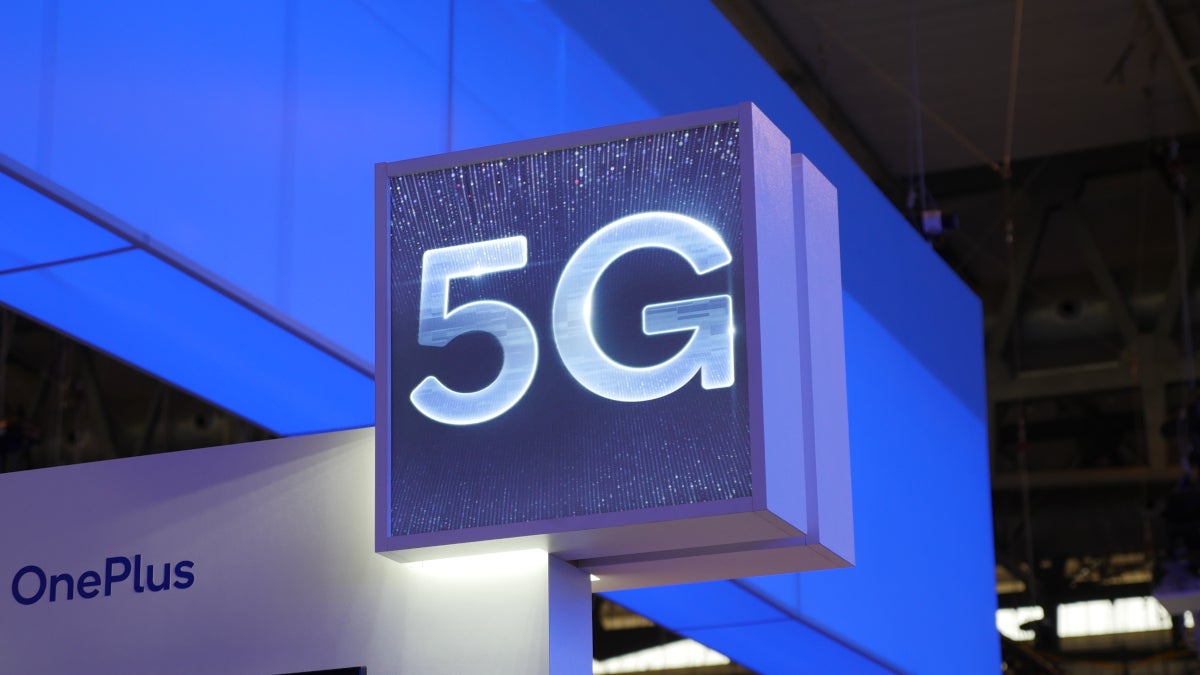
Neville Ray, T-Mobile's president of technology, has made some negative comments about the carrier's competitors. This isn't surprising since T-Mobile has often gone after Verizon and AT&T for one reason or another. According to SDX, Ray recently pointed out that Verizon and AT&T's nationwide 5G download data speeds aren't even topping their 4G LTE speeds. T-Mobile customers are also experiencing the same problem in some areas, and truthfully, it is the nature of the beast. Low-band 5G spectrum just does not deliver the fast data speeds that you're hoping to experience from 5G.
T-Mobile is building its 5G network in the opposite direction than Verizon
But what T-Mobile has that the competition doesn't is that large hoard of mid-range spectrum that it acquired in the Sprint merger. Some analysts say that mid-band airwaves will be the differentiator allowing T-Mobile to be the U.S. leader in 5G data speed. According to Ray, download data speeds for T-Mobile's mid-band 5G signals are closing in on 300Mbps. That compares to 40Mbps for the wireless provider's 4G LTE signals and double that data speed for T-Mobile's low-band 5G spectrum that covers 280 million Americans. Ray said, "the speeds on that 5G layer across that 280 million pops are about double our LTE averages in the industry to date." That means that T-Mobile's low-band 5G coverage should be delivering download data speeds in the area of 80Mbps.
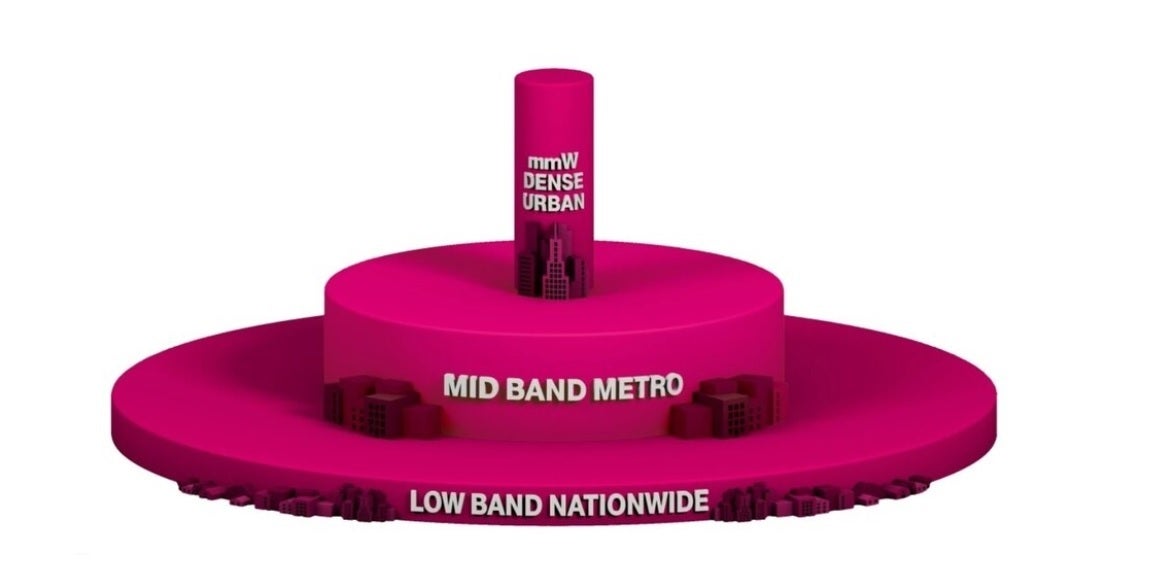
T-Mobile believes its layer cake approach is the best way to build a 5G network
But just as Ray made his comments about AT&T and Verizon, an iPhone 12 Pro in Long Beach, California running on T-Mobile's 5G network generated a download data speed of .85Mbps. A subsequent test of the carrier's 4G LTE network produced a speed of 47.5Mbps. Ouch! Still, having that mid-band spectrum allows T-Mobile executives to display some hubris when it comes to its customers' 5G experience vs. the competition. T-Mobile CEO Mike Sievert compared the layer cake approach to 5G that T-Mobile has taken to Verizon's decision to start with mmWave spectrum and work down. T-Mobile's thinking is opposite that of Verizon. Ray says that building T-Mobile's mmWave network is something best left for the final stages of deployment of a 5G network.
What T-Mobile discovered early on was that the 600MHz airwaves it spent a fortune bidding on was the perfect foundation for its cake since it travels great distances (although providing slower data speeds). Verizon's mmWave spectrum allows some Big Red customers to experience extremely fast download data speeds but the signals travel very short distances making them better suited for urban areas. Sievert pointed this out when he said, "Verizon, in the entire two years that they’ve been at this, have managed to accomplish [2 million pops covered by its high-capacity 5G network]." Just do the math, that means in 2021 we will do more covered pops on Ultra Capacity 5G per week than Verizon has done in the entire two years they’ve been at this. That’s where we are. That’s the advantage of our model. That’s network leadership that translates to real advantages for enterprises and consumers."
T-Mobile has a $40 billion network upgrade planned which will allow it to pull the plug on Sprint's legacy network sites. This work won't really start until the carrier is finished building its 5G network and Sprint customers have been migrated to T-Mobile's main network; this process will take a few years to complete. Right now, more than 20% of Sprint's legacy traffic had been moved to T-Mobile's network. Neville Ray states that, "When we’re building and upgrading these sites and adding that wonderful 2.5 GHz spectrum to these sites, we’re also adding LTE as well as 5G. And so that’s building the capacity that we need to support that customer migration from Sprint’s legacy network." He adds, "If you look at customers that were legacy Sprint that now spend the majority of their time, the vast majority of their time, on the T-Mobile network, that number is now just north of 4 million customers."
Follow us on Google News







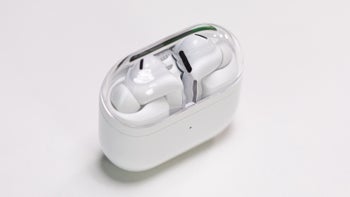
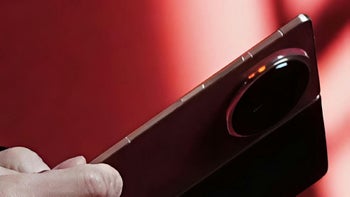
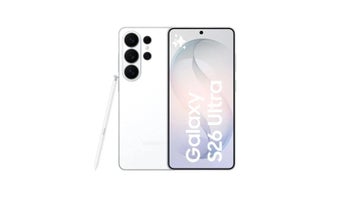
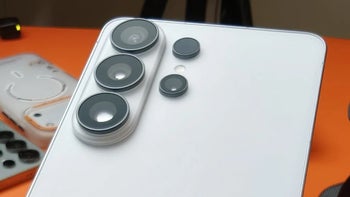
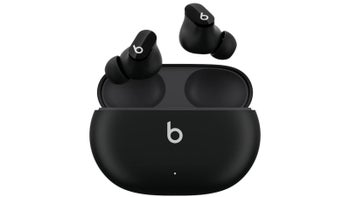
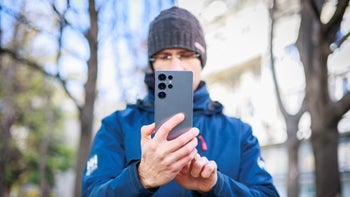
Things that are NOT allowed:
To help keep our community safe and free from spam, we apply temporary limits to newly created accounts: